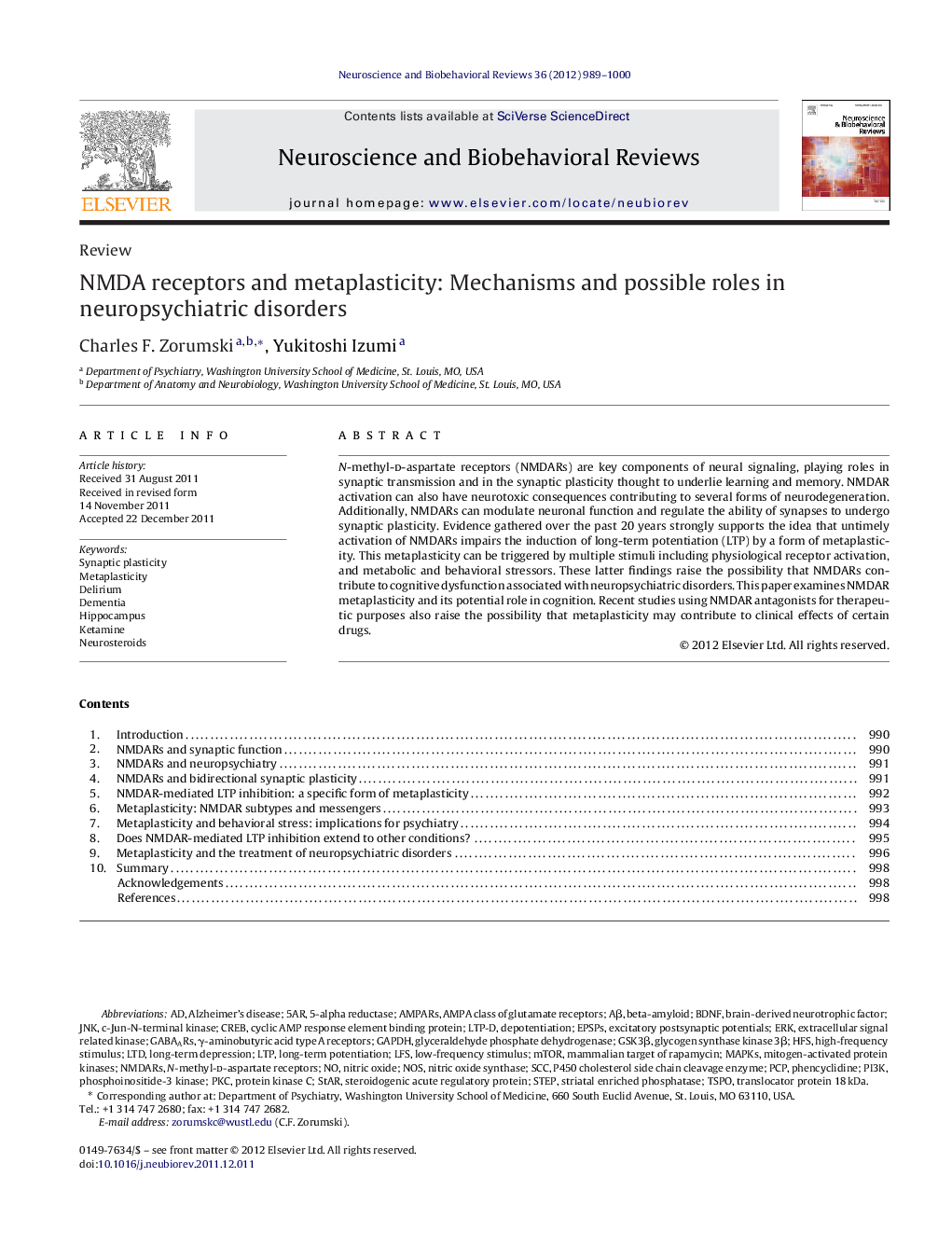| Article ID | Journal | Published Year | Pages | File Type |
|---|---|---|---|---|
| 937563 | Neuroscience & Biobehavioral Reviews | 2012 | 12 Pages |
N-methyl-d-aspartate receptors (NMDARs) are key components of neural signaling, playing roles in synaptic transmission and in the synaptic plasticity thought to underlie learning and memory. NMDAR activation can also have neurotoxic consequences contributing to several forms of neurodegeneration. Additionally, NMDARs can modulate neuronal function and regulate the ability of synapses to undergo synaptic plasticity. Evidence gathered over the past 20 years strongly supports the idea that untimely activation of NMDARs impairs the induction of long-term potentiation (LTP) by a form of metaplasticity. This metaplasticity can be triggered by multiple stimuli including physiological receptor activation, and metabolic and behavioral stressors. These latter findings raise the possibility that NMDARs contribute to cognitive dysfunction associated with neuropsychiatric disorders. This paper examines NMDAR metaplasticity and its potential role in cognition. Recent studies using NMDAR antagonists for therapeutic purposes also raise the possibility that metaplasticity may contribute to clinical effects of certain drugs.
► NMDA receptors play key roles in synaptic function and plasticity. ► NMDA receptors also modulate neuronal function and inhibit LTP via metaplasticity. ► Metaplasticity contributes to dysfunction in multiple neuropsychiatric disorders.
